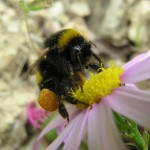by Catherine Haug, October 3, 2013; updated Oct 25, 2014 to removed malware links
I just received an email from the National Sustainable Agriculture Coalition (NSAC) about the new Food Safety and Modernization Act (FSMA) rules that will negatively impact your access to local, fresh foods at farmers markets, roadside stands, local co-ops, and CSAs. Below is a copy of that email for your reference.
The FSMA is intended to focus the FDA on prevention of food-borne illness rather than reacting after the fact. In principle, this is a good idea, but some of the rules as written may unintentionally do harm to local, sustainable food production. The following issues are addressed in the comment guidelines provided by the NSAC, and in my customized letter:
- Rules concerning fertilization go to far in restricting use of aged manure and compost;
- Rules regarding farmers markets, CSAs, roadside stands, and other direct-to-consumer vendors and not clearly defined as retail food establishment, as required by the law, but rather could be construed to fall under facilities (such as commercial processing facilities) subject to additional regulation, as the law is currently written;
- The revenue threshold for businesses to be regarded as ‘industrial’ facilities is currently set too low, making smaller farms and food hubs subject to industrial-scale regulation;
- The “material conditions” that lead to withdrawal of a farmer’s protected status (protecting him from undo regulation) are not clearly defined in measurable terms; this puts small family farmers at risk.
Cat’s update October 2014: If you wish to submit comments, it is now too late. Since one of the links in the instructions for posting comments now contains malware, I have deleted that section. I have, however, retained the copy of the comment letter I submitted for future reference (see below).
And here’s another take on the issue, including some history: Will the FDA’s New Food Safety Rules Hurt Small Farmers?
Read on for a copy of my comment letter, and the original email from NSAC. (more…)


